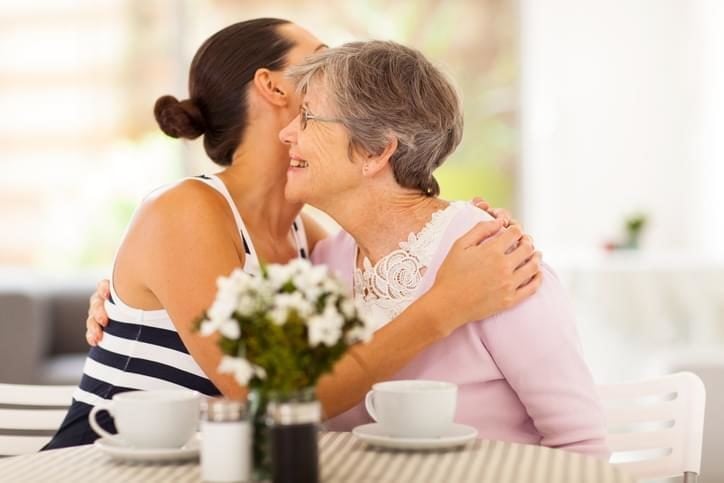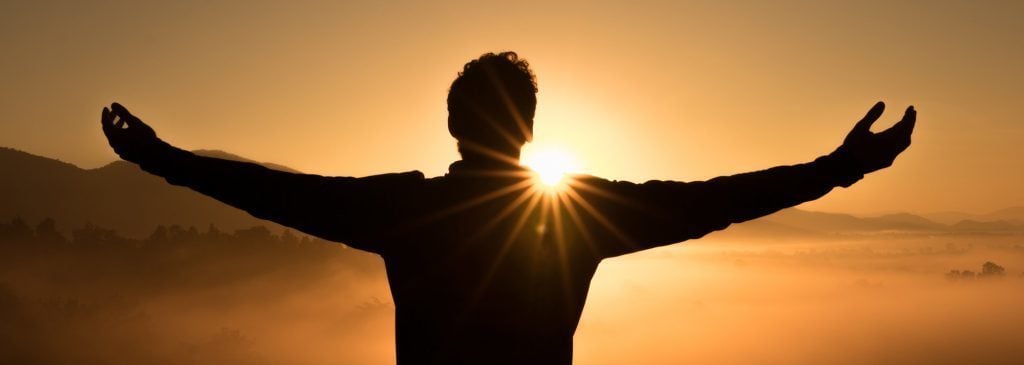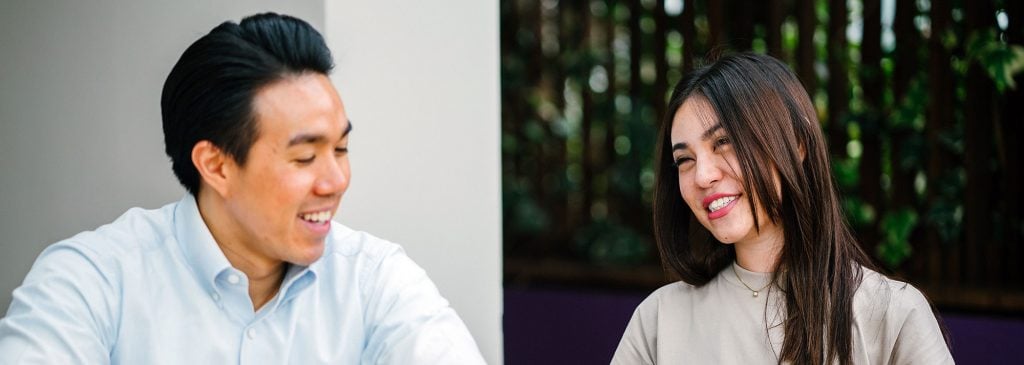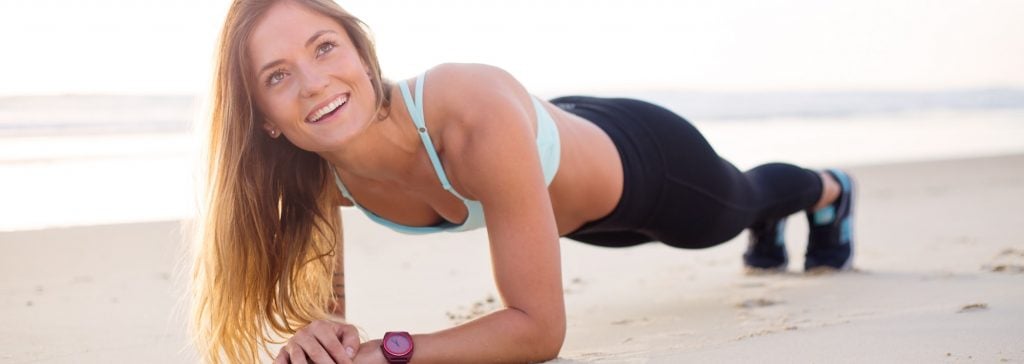Health
Wellbeing for all Australians
04 August 2021
Health
04 August 2021

Money & Life contributors draw on their diverse range of experience to present you with insights and guidance that will help you manage your financial wellbeing, achieve your lifestyle goals and plan for your financial future.
For over 30 years, David Liddiard OAM has dedicated his time and energy to securing the economic, mental and physical wellbeing of Indigenous Australians. He speaks to Miriam Delacy about the progress being made and his hopes for the future.
In spite of the restrictions and border closures that have become a part of life in Australia in the last 18 months, David Liddiard has continued to stay in close contact with many Indigenous communities in remote areas as well as regional centres. As Managing Director of the David Liddiard Group he has been striving to build capacity, wellbeing and security for all Australia’s First Peoples since the 1990s. It would take more than a pandemic to keep him, and his network and partners, from moving forward with their many projects and initiatives.
For longstanding fans of Australian rugby league, David’s face and name will be very familiar. Perhaps most well-known for his time with the Parramatta Eels, David enjoyed a successful sporting career in the 1980s and 1990s. He also played for Manly and Penrith and appeared in two grand finals for Parramatta in 1983 and 1984, winning the premiership in the 1983 season as well as the Daily M Rookie of the Year award.
David gives his family the credit for the drive and dedication it took to reach these heights on the football field, and for much of what he’s achieved since. “I’ve always been close to my family and my Mum was the best role model I could have,” says David. “She was one of 10 kids and was given colouring books instead of being taught to read. But she wasn’t going to let that hold her back. She really pushed me to give my all in everything I do and to take any opportunity that comes my way. I’m really just a bloke who went OK at football and it’s thanks to Mum motivating me from the start that I’ve gone on to do so much after retiring from sport.”
It was after his time playing for Hull FC in the UK that David’s journey as an Indigenous advocate and ambassador began in earnest. Knowing how much of a difference sport had made in his own life, he established the National Aboriginal Sporting Chance Academy (NASCA) in 1995. For the thousands of Aboriginal children and youth who took part in NASCA initiatives over the next 20 years, the organisation and David’s extensive network of contacts in sport, government, industry and education provided ‘a bridge to a brighter future.’
“These kids need to know that the world is a bigger place than they might be aware of, full of opportunity and support for them to achieve amazing things,” says David. “This meant engaging at many different levels – from the international tours we organised for young men and women who are the rising stars of netball and rugby league, to the ARMTour (Athletes as Role Models on Tour) program which provided our Indigenous youth with positive role models to encourage them to finish school and prepare themselves for a career.
“I accompanied the first ever Indigenous Rugby League Team to the UK, and the experience inspired me. One special memory was the group of Aboriginal and Torres Strait Islanders for whom we organised a sport and cultural exchange with the United Arab Emirates, sponsored by the UAE Ambassador to Australia. These kids were having lunch with sheikhs in the desert. It was important to me that these experiences were genuinely life changing. They are often promised the world and then get handed an atlas. By living these moments and taking their stories back home, they know what it is to be cared for and treated as human beings with so much to offer.”
From his own experience of sporting success and living the life that goes with it, David knows that programs like this can inspire individual young people to strive for better, both on their own behalf and for their families and communities too. But he is also well aware that this type of lifestyle is far beyond the reach of many young Aboriginal Australians who struggle to access a basic education, live in safety with their family and stay out of the juvenile justice system.
“NASCA was really just the beginning of my efforts to connect our young people with a better life and future,” he says. “There are a lot more dots to join up to keep them in school, and give them the resources and support they need to have a great life and career ahead of them.”
During the next decade, David’s agenda and activities for supporting Indigenous youth expanded significantly as he became involved in a whole host of initiatives, including the Dare to Lead project. This Australian Government venture involved coordination with 5200 schools Australia-wide with the goal of improving education, employment and health outcomes for Aboriginal and Torres Strait Islander students.
From 2008 David led the Indigenous Corporate Partnerships strategy for Dare to Lead, giving him the opportunity to work with future business partner Andrea Harms. Together they founded Corporate Connect.AB in 2010, a profit-for-purpose organisation established to close the gap in Indigenous disadvantage and to increase the economic independence of communities and individuals in remote, regional and urban areas.
In the following decade, the foundations of knowledge, partnerships and practical experience David and Andrea had developed in their respective careers united to guide their appropriate, authentic and sustainable approach to improving life opportunities for Indigenous Australians. While their work aims to foster these opportunities across all age groups, David is quick to acknowledge that supporting younger Aboriginal Australians at this time couldn’t be more important. He is one of many Aboriginal leaders devastated to see the figures on Indigenous youth suicide reported in the most recent Close the Gap Campaign report.

“We need to make sure our kids don’t lose hope and can grasp that they have a bright future to live for,” he says. “This starts with helping them engage more during their school years and supporting them with a Career Plan, as we do through our Dubbo Opportunity Hub (DHUB) initiative, funded by NSW Education. This program supports 1200 Aboriginal youth with confidence and practical career guidance.
“We’ve also started the initiative of supporting Aboriginal students with their own laptops, supplied and repurposed from our corporate partners. Those same partners provide work experience and traineeships, connecting these young people with a really strong start to their career. Transport NSW has funded a program we deliver to increase safe driving and achieving a drivers licence. Our corporate partners have donated vehicles so we can help more Aboriginal youth learn to drive and travel independently which is vital if they’re to keep furthering their career and securing employment. We have delivered over 2000 hours of mentored driving practice for 240 youths in five months.
“Access to these resources breaks the cycle of crime that sees so many of our youth land in the juvenile justice system which can be a dead end for their life goals, confidence and chances of economic freedom.”
Based on the early success of the initiative to supply laptops to Aboriginal kids in local schools, David now has his sights set on expanding the program at the national level. With the support he’s enjoyed from corporate partners over the years, he has every confidence that all Aboriginal students in Australia will soon have access to the technology resources needed to learn essential workplace skills.
With his appointment to the board of the R U OK? Foundation in 2016, David became more actively involved in raising awareness of the mental health struggles of Indigenous Australians. He was part of the advisory group who worked on Let’s talk, we’re stronger together, a culturally appropriate R U OK? campaign. The campaign kit includes videos, posters and a conversation guide to encourage community members to help each other open up about their struggles.
While David believes in the importance of community members supporting one another through a mental health crisis, he trusts the work he and his partners are doing to create longer-term, sustainable solutions to critical factors that underpin health and wellbeing for Indigenous Australians. “Corporate Connect.AB is one of several companies in the David Liddiard Group,” says David. “We established Birubi Australia in 2013 as a Supply Nation certified Aboriginal owned and operated civil construction company. The projects we undertake work at many levels to bring better outcomes for Indigenous communities and individuals.
“Take one of our road projects at Port Augusta. This really dusty road was making the community sick and there had been numerous attempts to remedy this in the last 20 years. Through advocacy with industry and government, we secured a contract to tar the road and recruited local Aboriginal youth and Elders to work on the project. From filling up the water truck to operating machinery, there were jobs for everyone, including some who had never worked before. These sort of outcomes are essential for both the physical and mental health of the whole community.”
Partnerships are the foundation for every entity in the David Liddiard Group. One of the more ambitious partner projects currently in development is a collaborative, innovative model for creating and maintaining sustainable Indigenous communities. “Many of our remote communities lack secure housing and are running off diesel fuel, which is expensive and creates significant pollution leading to health problems,” says David. “Right now we’re working on a 10-year partnership plan drawing on land management practices from Indigenous culture, renewable energy technologies and best-practice in training and development. It’s an approach that’s got so much potential to bring real independence and prosperity to Indigenous communities in a way that respects our culture and our traditional Elders.”
This latest initiative is further proof of the power of networks and collaboration to bring about real change. David is humble about the fact that many influential people over the years have put their faith in him and his belief that a united effort will see all his countrymen and women thrive. The stated goal of the David Liddiard Group is for ‘Indigenous Australians ultimately to enjoy the same standard of living as other Australians – for them to be as healthy, as long living and as able to participate in the social and economic life of the country.’ And David knows well from his 30+ years of experience that the involvement of as many stakeholders as possible from Australian society is essential for making meaningful progress towards that goal.
“I’ve had these amazing women and men around me who share my passion for having an impact and achieving better outcomes for our Indigenous youth and communities,” says David. “People have opened doors on my behalf, starting with John Brown, the Sport and Tourism minister in my footballing days who was like my second father. Jim Sloman and Stuart Hornery at Lendlease were hugely supportive of our earliest training and development programs. As our Minister for Indigenous Australians, Ken Wyatt is one of our most important allies and supporters today.
“These are just some of the people I’ve been able to go to over the years to get the outcomes we’re striving for. Like me, they want to throw their arms around our kids and do what we can to guide them towards a safer, more prosperous future, where they get to live a life they can be proud of, as I am of mine.”
 | Wellbeing for all Australians04 August 2021 For over 30 years, David Liddiard OAM has dedicated his time and energy to securing the economic, mental and physical wellbeing of Indigenous Australians. He speaks to Miriam Delacy about the progress being made and his hopes for the future. In spite of the restrictions and border closures that have become a part of life in Australia in the last 18 months, David Liddiard has continued to stay in close contact with many Indigenous communities in remote areas as well as regional centres. As Managing Director of the David Liddiard Group he has been striving to build capacity, wellbeing and security for all Australia’s First Peoples since the 1990s. It would take more than a pandemic to keep him, and his network and partners, from moving forward with their many projects and initiatives. For longstanding fans of Australian rugby league, David’s face and name will be very familiar. Perhaps most well-known for his time with the Parramatta Eels, David enjoyed a successful sporting career in the 1980s and 1990s. He also played for Manly and Penrith and appeared in two grand finals for Parramatta in 1983 and 1984, winning the premiership in the 1983 season as well as the Daily M Rookie of the Year award. David gives his family the credit for the drive and dedication it took to reach these heights on the football field, and for much of what he’s achieved since. “I’ve always been close to my family and my Mum was the best role model I could have,” says David. “She was one of 10 kids and was given colouring books instead of being taught to read. But she wasn’t going to let that hold her back. She really pushed me to give my all in everything I do and to take any opportunity that comes my way. I’m really just a bloke who went OK at football and it’s thanks to Mum motivating me from the start that I’ve gone on to do so much after retiring from sport.” Opportunities in sportIt was after his time playing for Hull FC in the UK that David’s journey as an Indigenous advocate and ambassador began in earnest. Knowing how much of a difference sport had made in his own life, he established the National Aboriginal Sporting Chance Academy (NASCA) in 1995. For the thousands of Aboriginal children and youth who took part in NASCA initiatives over the next 20 years, the organisation and David’s extensive network of contacts in sport, government, industry and education provided ‘a bridge to a brighter future.’ “These kids need to know that the world is a bigger place than they might be aware of, full of opportunity and support for them to achieve amazing things,” says David. “This meant engaging at many different levels – from the international tours we organised for young men and women who are the rising stars of netball and rugby league, to the ARMTour (Athletes as Role Models on Tour) program which provided our Indigenous youth with positive role models to encourage them to finish school and prepare themselves for a career. “I accompanied the first ever Indigenous Rugby League Team to the UK, and the experience inspired me. One special memory was the group of Aboriginal and Torres Strait Islanders for whom we organised a sport and cultural exchange with the United Arab Emirates, sponsored by the UAE Ambassador to Australia. These kids were having lunch with sheikhs in the desert. It was important to me that these experiences were genuinely life changing. They are often promised the world and then get handed an atlas. By living these moments and taking their stories back home, they know what it is to be cared for and treated as human beings with so much to offer.” Support for our youthFrom his own experience of sporting success and living the life that goes with it, David knows that programs like this can inspire individual young people to strive for better, both on their own behalf and for their families and communities too. But he is also well aware that this type of lifestyle is far beyond the reach of many young Aboriginal Australians who struggle to access a basic education, live in safety with their family and stay out of the juvenile justice system. “NASCA was really just the beginning of my efforts to connect our young people with a better life and future,” he says. “There are a lot more dots to join up to keep them in school, and give them the resources and support they need to have a great life and career ahead of them.” During the next decade, David’s agenda and activities for supporting Indigenous youth expanded significantly as he became involved in a whole host of initiatives, including the Dare to Lead project. This Australian Government venture involved coordination with 5200 schools Australia-wide with the goal of improving education, employment and health outcomes for Aboriginal and Torres Strait Islander students. From 2008 David led the Indigenous Corporate Partnerships strategy for Dare to Lead, giving him the opportunity to work with future business partner Andrea Harms. Together they founded Corporate Connect.AB in 2010, a profit-for-purpose organisation established to close the gap in Indigenous disadvantage and to increase the economic independence of communities and individuals in remote, regional and urban areas. In the following decade, the foundations of knowledge, partnerships and practical experience David and Andrea had developed in their respective careers united to guide their appropriate, authentic and sustainable approach to improving life opportunities for Indigenous Australians. While their work aims to foster these opportunities across all age groups, David is quick to acknowledge that supporting younger Aboriginal Australians at this time couldn’t be more important. He is one of many Aboriginal leaders devastated to see the figures on Indigenous youth suicide reported in the most recent Close the Gap Campaign report.
“We need to make sure our kids don’t lose hope and can grasp that they have a bright future to live for,” he says. “This starts with helping them engage more during their school years and supporting them with a Career Plan, as we do through our Dubbo Opportunity Hub (DHUB) initiative, funded by NSW Education. This program supports 1200 Aboriginal youth with confidence and practical career guidance. “We’ve also started the initiative of supporting Aboriginal students with their own laptops, supplied and repurposed from our corporate partners. Those same partners provide work experience and traineeships, connecting these young people with a really strong start to their career. Transport NSW has funded a program we deliver to increase safe driving and achieving a drivers licence. Our corporate partners have donated vehicles so we can help more Aboriginal youth learn to drive and travel independently which is vital if they’re to keep furthering their career and securing employment. We have delivered over 2000 hours of mentored driving practice for 240 youths in five months. “Access to these resources breaks the cycle of crime that sees so many of our youth land in the juvenile justice system which can be a dead end for their life goals, confidence and chances of economic freedom.” Based on the early success of the initiative to supply laptops to Aboriginal kids in local schools, David now has his sights set on expanding the program at the national level. With the support he’s enjoyed from corporate partners over the years, he has every confidence that all Aboriginal students in Australia will soon have access to the technology resources needed to learn essential workplace skills. Sustainable solutionsWith his appointment to the board of the R U OK? Foundation in 2016, David became more actively involved in raising awareness of the mental health struggles of Indigenous Australians. He was part of the advisory group who worked on Let’s talk, we’re stronger together, a culturally appropriate R U OK? campaign. The campaign kit includes videos, posters and a conversation guide to encourage community members to help each other open up about their struggles. While David believes in the importance of community members supporting one another through a mental health crisis, he trusts the work he and his partners are doing to create longer-term, sustainable solutions to critical factors that underpin health and wellbeing for Indigenous Australians. “Corporate Connect.AB is one of several companies in the David Liddiard Group,” says David. “We established Birubi Australia in 2013 as a Supply Nation certified Aboriginal owned and operated civil construction company. The projects we undertake work at many levels to bring better outcomes for Indigenous communities and individuals. “Take one of our road projects at Port Augusta. This really dusty road was making the community sick and there had been numerous attempts to remedy this in the last 20 years. Through advocacy with industry and government, we secured a contract to tar the road and recruited local Aboriginal youth and Elders to work on the project. From filling up the water truck to operating machinery, there were jobs for everyone, including some who had never worked before. These sort of outcomes are essential for both the physical and mental health of the whole community.” Partnerships are the foundation for every entity in the David Liddiard Group. One of the more ambitious partner projects currently in development is a collaborative, innovative model for creating and maintaining sustainable Indigenous communities. “Many of our remote communities lack secure housing and are running off diesel fuel, which is expensive and creates significant pollution leading to health problems,” says David. “Right now we’re working on a 10-year partnership plan drawing on land management practices from Indigenous culture, renewable energy technologies and best-practice in training and development. It’s an approach that’s got so much potential to bring real independence and prosperity to Indigenous communities in a way that respects our culture and our traditional Elders.” Tapping into networksThis latest initiative is further proof of the power of networks and collaboration to bring about real change. David is humble about the fact that many influential people over the years have put their faith in him and his belief that a united effort will see all his countrymen and women thrive. The stated goal of the David Liddiard Group is for ‘Indigenous Australians ultimately to enjoy the same standard of living as other Australians – for them to be as healthy, as long living and as able to participate in the social and economic life of the country.’ And David knows well from his 30+ years of experience that the involvement of as many stakeholders as possible from Australian society is essential for making meaningful progress towards that goal. “I’ve had these amazing women and men around me who share my passion for having an impact and achieving better outcomes for our Indigenous youth and communities,” says David. “People have opened doors on my behalf, starting with John Brown, the Sport and Tourism minister in my footballing days who was like my second father. Jim Sloman and Stuart Hornery at Lendlease were hugely supportive of our earliest training and development programs. As our Minister for Indigenous Australians, Ken Wyatt is one of our most important allies and supporters today. “These are just some of the people I’ve been able to go to over the years to get the outcomes we’re striving for. Like me, they want to throw their arms around our kids and do what we can to guide them towards a safer, more prosperous future, where they get to live a life they can be proud of, as I am of mine.” |
HelpSelect and copy the HTML code above, or
Thank you a copy has been sent to your email. Your e-book will begin automatically. Please click the link below to download manually.
Click here to download



